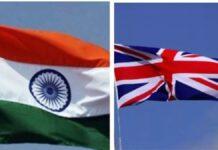The government resolution that eliminated the income requirement for abroad scholarships was overturned by the Nagpur bench of the Bombay High Court, which also emphasised that the scholarship’s original purpose of aiding underprivileged students should be upheld.
The verdict was rendered on Wednesday by a division bench of Justices Avinash Gharote and M S Jawalkar. The bench stated that by nullifying Clause D(2) of the GR, which was issued by the Maharashtra government on June 27, 2017, it seeks to maintain fairness in access to educational opportunities and address the imbalance in scholarship distribution.
It was observed that the goal of the system was distorted as a result of Clause D(2), which exempted students admitted to the top 100 QS World University Ranking institutions from the income criteria. This allowed financially stable students to receive advantages meant for candidates from economically disadvantaged backgrounds.
The decision was made in response to a writ suit that Nagpur student Mayur Sanghrakshit Patil, 28, filed, in which he discussed the unfairness of the allocation of scholarships based on economic levels.
Patil—a member of the Scheduled Caste (SC)—contested the clause, arguing that it is discriminatory and that it will negatively affect pupils from low-income backgrounds.
Patil stated that although he has been accepted to study at Duke University (in the USA), banks are unable to lend him money because of his lack of resources, depriving him of his right to an education.
Patil stated that although he has been accepted to study at Duke University (in the USA), banks are unable to lend him money because of his lack of resources, depriving him of his right to an education.
The petitioner also included details about the guardians’ income and the students’.
The court observed that the information presented paints a very bleak picture, with students receiving scholarship benefits whose guardians are well-off and have a substantial income. This undermines the very goal of the programme, which was to provide scholarships to those who could not afford to pursue higher education overseas.
Clause D(2), which exempted students admitted to the top 100 QS World Ranking universities from the income criteria, was found to be the cause of the difference upon close examination by the court.
It was noted that this exemption distorted the goal of the policy by allowing financially sound students to get advantages meant for applicants from economically disadvantaged backgrounds.
The government’s conflicting position on income requirements, with adjustments made in light of COVID-19, was also pointed out by the court. The 2017 resolution remained in place despite talks suggesting a change to a maximum family income of Rs 8 lakh. No formal amendment was implemented.
The court’s decision emphasised how important it is to maintain the scholarship’s original goal of assisting students from lower castes in pursuing higher education.
The court hopes to maintain equity in access to educational opportunities and correct the disparity in scholarship distribution by nullifying Clause D (2).
In light of the ruling’s ramifications, the court ordered the authorities to reevaluate Patil’s scholarship application within a week.
































